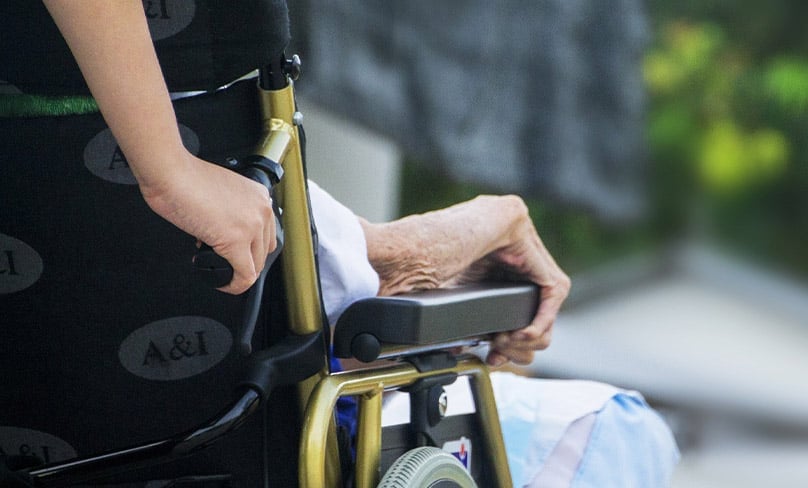
More than 100 people died through South Australia’s voluntary assisted dying scheme in its first year, according to figures released by the state’s health minister on 1 February.
Out of 195 people issued with a voluntary assisted dying permit, 140 people died, including 110 from the administration of a VAD substance. Those numbers are likely to rise as 121 doctors registered to undertake mandatory training for the procedure will join the 73 doctors already qualified to support it.
South Australia’s Minister for Health and Wellbeing Chris Picton said that it was an “important milestone” for the state.
“VAD provides peace of mind to South Australians and their families and gives greater choice at the end of their life,” he said.
The state passed its dying laws in June 2021 for Australian or permanent residents aged 18 or older with an incurable, progressive and advanced condition expected to cause death within six months, or one year for a neurodegenerative condition, with suffering “that cannot be relieved in a manner the person considers tolerable.”
Adelaide’s Archbishop Patrick O’Regan at the time called for better resourcing for palliative care rather than the embracing of “state-sanctioned assisted suicide.”
Every Australian state has dying laws in place and the territories are set to follow, beginning with the ACT.
Opponents of VAD—including the Catholic and Anglican dioceses of Canberra and Goulburn, Australian Christian Lobby, Calvary Health Care and Dr Bernadette Tobin of the Plunkett Centre for Ethics at the Australian Catholic University—fronted a four-day parliamentary inquiry into draft legislation.
Archbishop Christopher Prowse of Canberra-Goulburn called for increased palliative care funding and access especially in rural areas, and for the conscientious objection of individuals and organisations to be respected in any dying laws.
“It’s mistaken compassion to me that the health profession set up on the whole ethos of healing would directly involve itself in assisting a person with the poison of a medication that would cause their death,” he said on the first day of public hearings, on 29 January.
“Notwithstanding their terminal illness and their fragility—to me palliative is just a commonsense response to that.”
Last year the ACT Government forcibly acquired Calvary Public Hospital Bruce and Clare Holland House, the territory’s only palliative care hospice. But Calvary Health Care still runs aged care facilities and two private hospitals in Canberra—Calvary Bruce Private Hospital and John James Hospital.
Its chair Ross Hawkins told the inquiry that these will not provide voluntary assisted dying services and expressed concern that he will be forced to allow doctors to enter the hospitals as third-party providers who operate outside Calvary’s strict credentialing process.
“That to me causes great concern of what that would look like for someone to be able to come on to my facility and provide a service where I haven’t credentialed them, I have not gone through all of the safety models of care points that sit within my licensing arrangements,” Hawkins said.
Calvary’s Dr Frank Brennan said well-funded palliative care provision needs to be a priority before dying laws are in force. “The worst possible story is where palliative care is sort of sidelined and everyone is focusing on the VAD and many of their symptoms and distress are not being addressed properly,” he said.
In their submissions, ACT Right to Life and Dr Bernadette Tobin warned of the draft bill’s potential for enabling abuse and coercion of vulnerable people.
She told the inquiry the bill allowed “great scope” for bracket creep allowing for future widening of scope to allow “virtually anyone over a certain age” to people to die by euthanasia or assisted suicide.
She said a provision for a third-year review to include introducing VAD via advanced care directives would remove a person’s capacity, particularly in the case of dementia, to choose euthanasia voluntarily.
“You and I both understand the suffering dementia can cause not just to the person but to others, but the scope for abusing what you are about to legalise in those circumstances is so wide open I really urge you to stand against that,” she said.
As the bill currently stands, the ACT laws would be country’s most extreme, with a person eligible regardless of how soon they are otherwise expected to die provided their condition is advanced, progressive and comes with “intolerable” suffering.
Vic review won’t loosen safeguards, NSW palliative care petition grows
A five-year review into Victoria’s voluntary assisted dying law has ruled out expanding the scheme to include people with dementia and allowing doctors to initiate conversations about euthanasia with their patients.
The Age reported that the state’s health department will not consider changes to the legislation which came into effect in June 2019, despite requests from euthanasia advocates to loosen existing safeguards.
It will instead focus on how the existing laws are operating.
Monash University’s Professor Paul Komesaroff said the clause preventing medical professionals from starting a conversation—which was introduced as a safeguard to prevent coercion—that makes it illegal for doctors to start a conversation about voluntary assisted dying with terminally ill patients “obstructs conversations between professional carers and patients who are seeking information.”
Meanwhile in New South Wales a campaign to restore promised palliative care funding has already collected more than 3600 signatures.
Liberal MLC Susan Carter said she will present her petition to the NSW Parliament after it closes in April, campaigning for the $150 million slashed from allocated palliative care funding in the last state budget to be restored.
“We’d love three times more signatures,” Carter told The Catholic Weekly.
“The NRMA recently achieved 20,000 signatures on a petition to double booze buses.
“I am hoping we can do at least as well to support the dying.”
